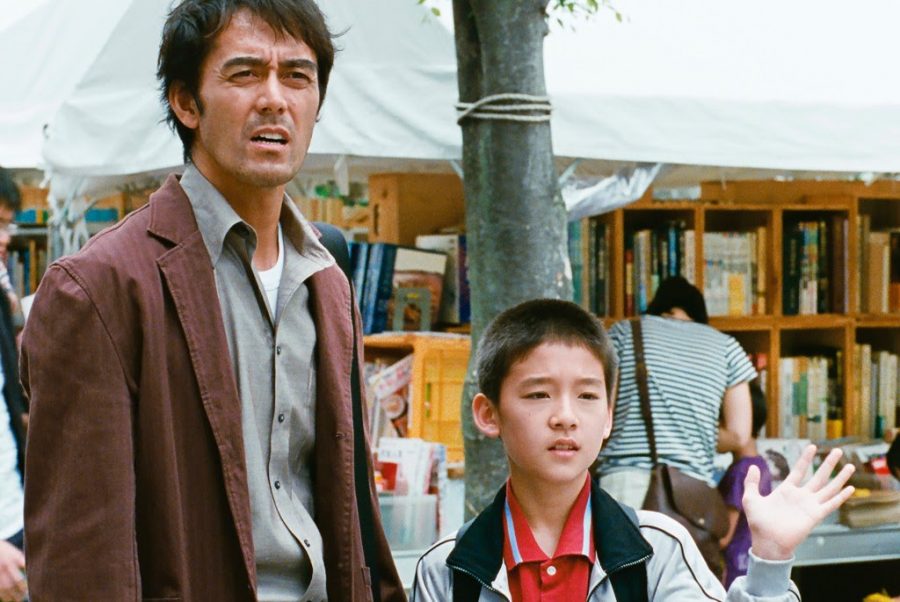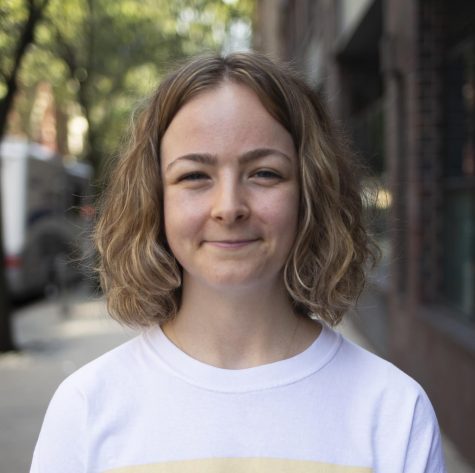The Light Comes ‘After the Storm’
Courtesy of Susan Norget Film Promotion
Hirokazu Kore-eda’s new film, “After the Storm,” depicts a man’s struggle to reconnect with his ex-wife and son. The film’s main strength is its simplistic and subtle details that create a complex narrative of domestic life.
March 20, 2017
Two women — a mother and her daughter — sit at the kitchen table discussing cooking, handwriting and the death of their husband and father. Both seem to be calm, coping with the unfortunate circumstance quite well. Then, the film’s focus shifts to the somber face of a middle-aged, unshaven man. He gazes out of the train window, then stops by a small noodle restaurant, quickly slurping up his bowl.
It is through these simplicities of everyday life that Hirokazu Kore-eda’s new film “After the Storm” prevails. It is above all else a finely-tuned and nuanced drama about family. Its protagonist, Ryota (Hiroshi Abe), is a once-renowned novelist turned private detective with a gambling addiction.
At the center of Ryota’s story is a yearning to reconnect with his ex-wife Kyoko (Yoko Maki) and to reestablish himself as a figure in his son Shingo’s (Taiyo Yoshizawa) life. The film’s meticulous details gather into a rich and moving story about the desire to be a part of something greater than one’s self.
The film’s ensemble and the way the actors complement one another is its strongest asset. Without this particular cast, the characters would not have been infused with the realism and subtlety that “After the Storm” relies on. It is as if these roles have been specifically written for them, or that they understand their characters’ personalities so perfectly that they are their own.
Ryota struggles to do good, even if that is his ultimate aim. He desperately wants to see his son, but loses most of his earned money through gambling. He wants to relish in his former glory as a novelist, but can’t seem to write anything new. Kore-eda impeccably highlights the demeaning life that Ryota has created for himself through minute details — he’s asked to write the story for a manga book, and later, when buying cleats for his son, he purposely scuffs them to get a discounted price. This makes Ryota not only a compelling character but one that the audience can sympathize with.
Kore-eda places his characters in unwanted proximity, forcing them to face their problems. The final third of the film takes place in Yoshiko’s apartment, where she, Ryota, Kyoko and their son, Shingo, are trapped because of a typhoon. Kyoko is uncomfortable there, but Ryota sees the ill-fated weather as a chance for reconciliation with the woman he hasn’t stopped loving. The night of the storm leads the estranged family to a beautiful and candid denouement.
“After the Storm” exhibits Hirokazu Kore-eda’s grasp on the nuances of human beings and their desires. It shows the difficulties of marriage, success, failure and children that everyone encounters at some point in their lives. Most of all, the film shows that in their deepest cores, people yearn to be part of a family.
“After the Storm” opened at the IFC Center on March 17.
Email Daniella Nichinson at [email protected].

























































































































































